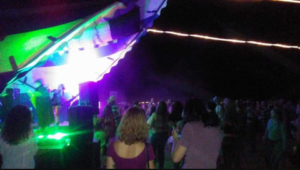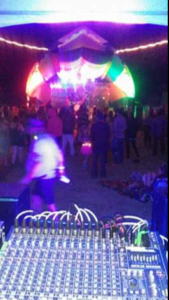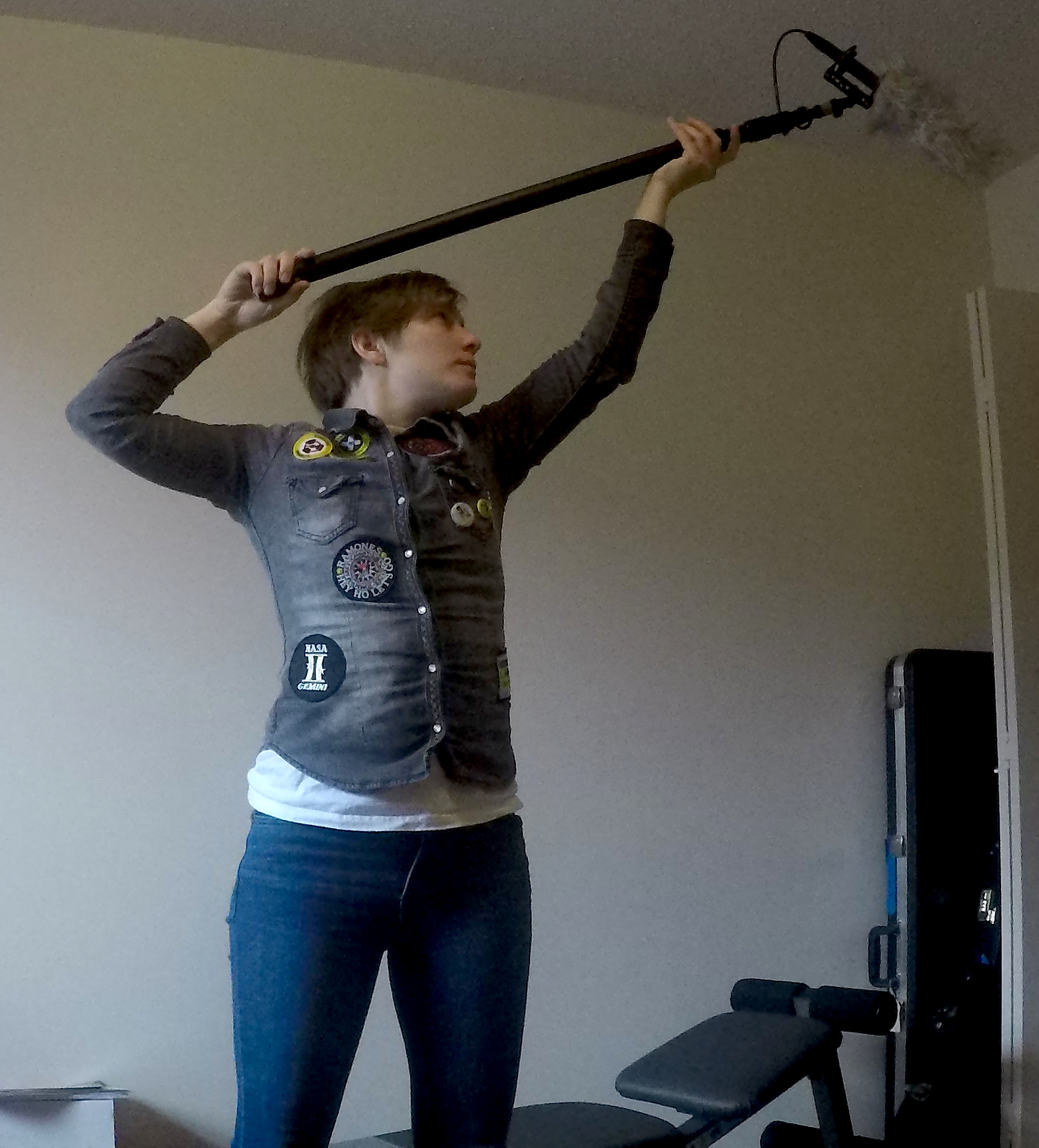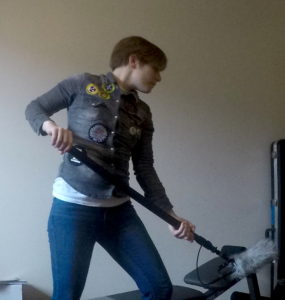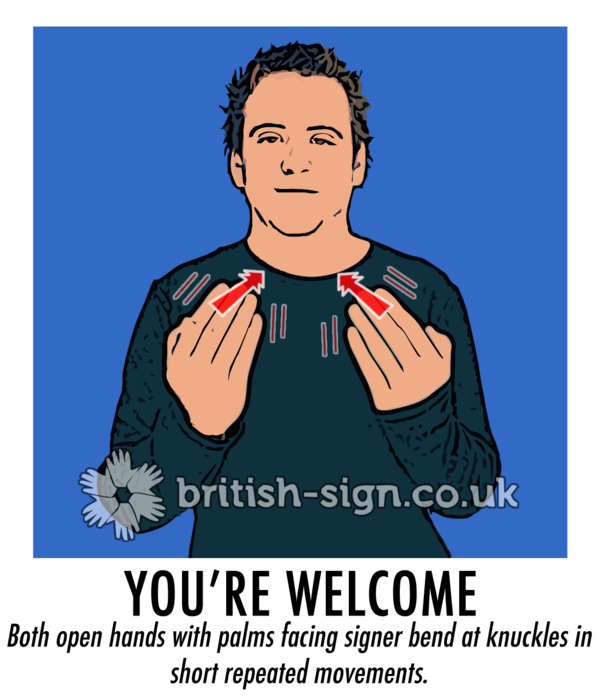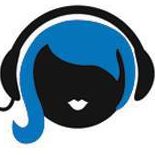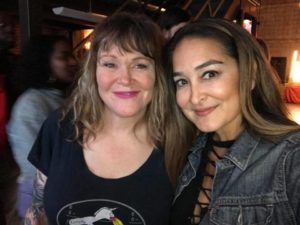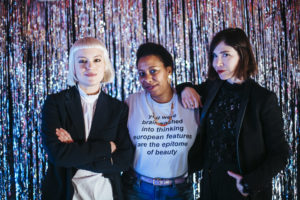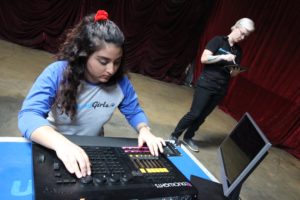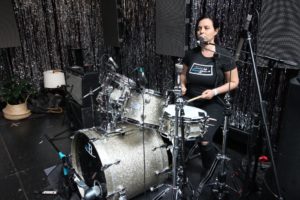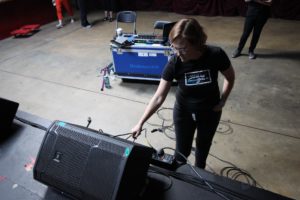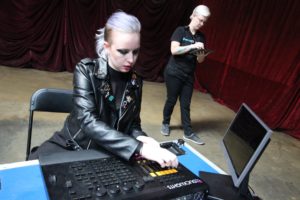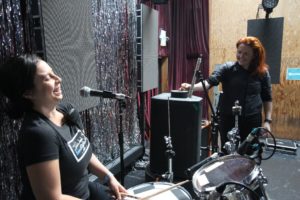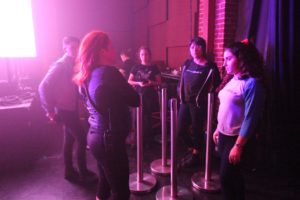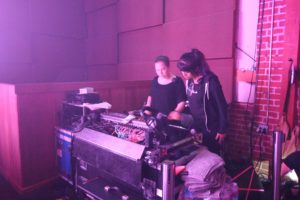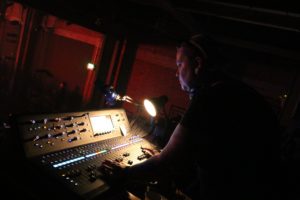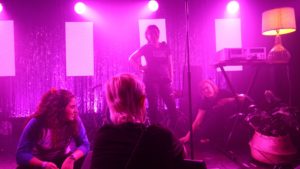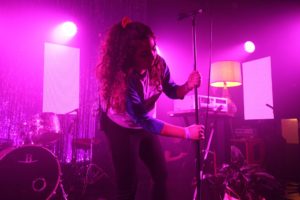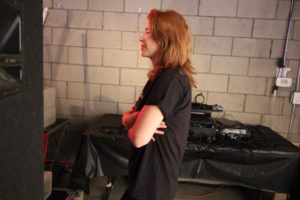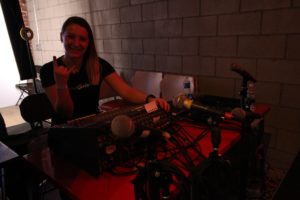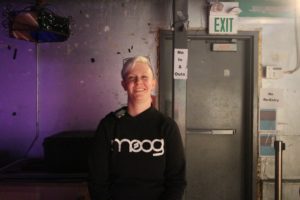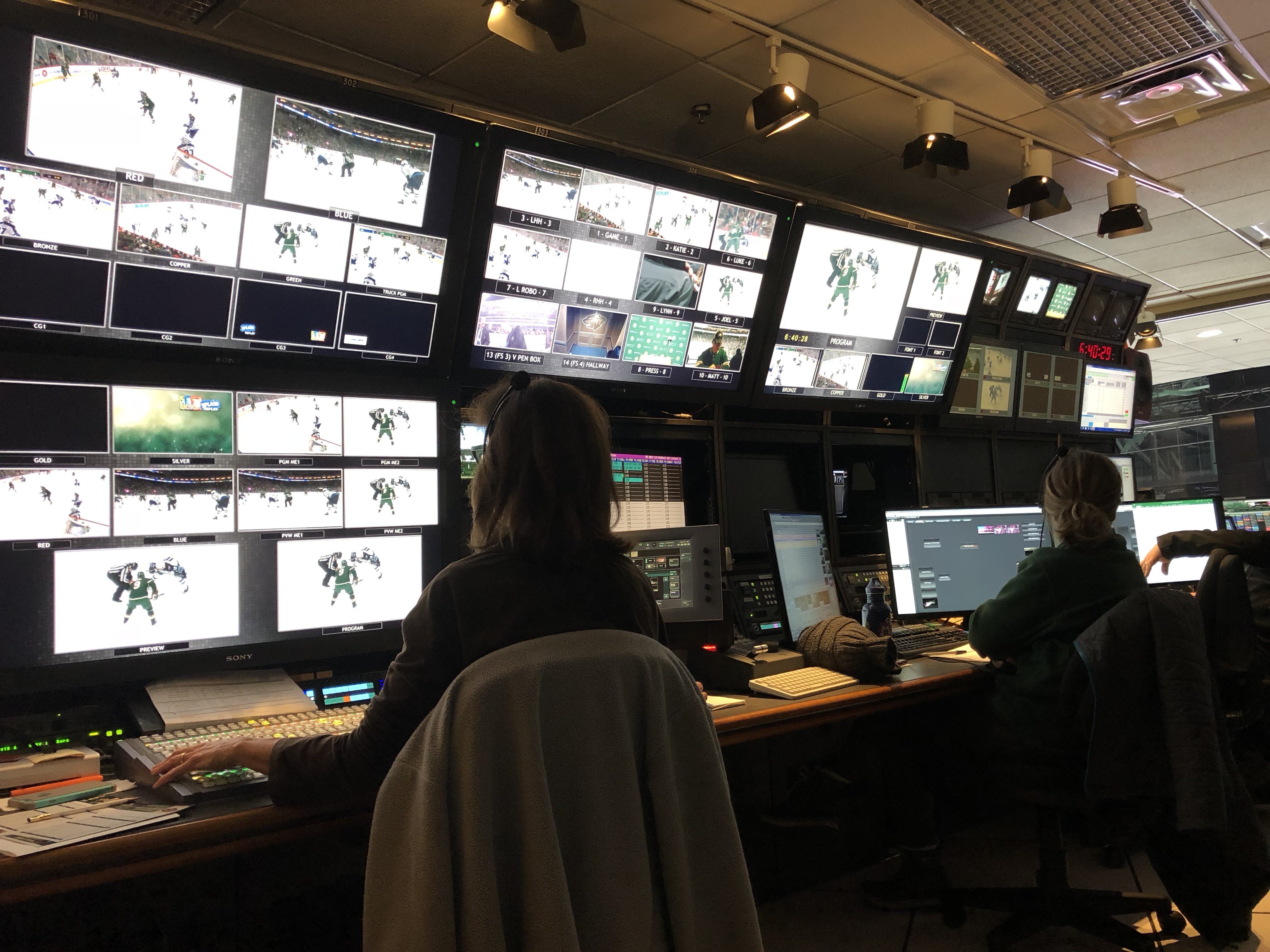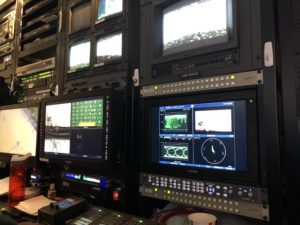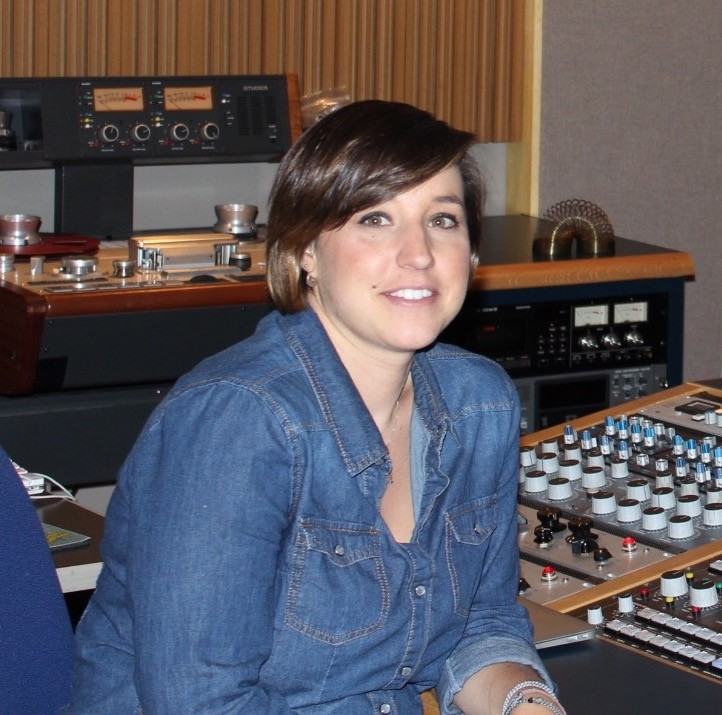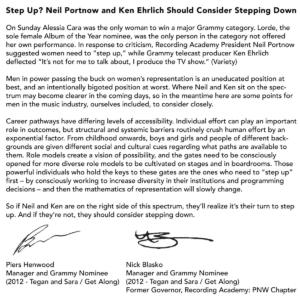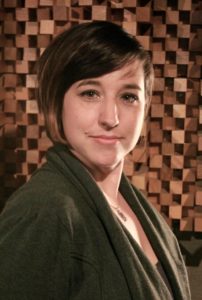 Mastering Engineer at Airshow Anna Frick got her start in high school producing an album for a friend that was a singer-songwriter. She had no idea what a producer did or what the job responsibilities were, but they ended up recording and producing an album, that they gave to their friends and families. Anna would take the album with her to college.
Mastering Engineer at Airshow Anna Frick got her start in high school producing an album for a friend that was a singer-songwriter. She had no idea what a producer did or what the job responsibilities were, but they ended up recording and producing an album, that they gave to their friends and families. Anna would take the album with her to college.
While music was not a focus while Anna was growing up, it was definitely present. Anna remembers playing records on her dad’s turntable, making mixtapes off the radio, recording sounds with a Fisher-Price tape recorder. It was when she attended a show that she sat behind the soundboard, and she became captivated by all the knobs, buttons, and faders. “It looked like a maze of control and options, and I wanted to know how it all worked.” Producing the album for her friend sparked her passion and led Anna on a path to go into audio.
Her parents were aware and supportive of Anna’s decision to pursue audio as a career path. At the same time, Anna did not what exactly she wanted to pursue or how to go about it. “ I loved the engineering side, but I really didn’t see a clear path to that.” Not attending college was not an option, and her parents convinced her to study business, which she did for the first year, this was frustrating and ultimately unsuccessful for Anna. At this point, Anna was determined to find a degree that would allow her to work in music. Then she discovered that the University of Colorado Denver offered audio and music business degrees, and it was only an hour away from home. It all started to make sense. She studied both audio engineering and music business.
After graduating with a bachelor’s degree in Music Industry Studies from the University of Colorado at Denver, she took the first job she could find, it was with a booking agency, and turned out not to be for Anna. On the upside though, this is where she would meet her husband. She would continue to take jobs on the business side of the industry and become more and more jaded, “Audio was constantly on my mind, but I didn’t know how to get my foot in the door at a studio while still being able to pay my bills.” Eventually, a few opportunities to work on the audio side would be offered to her.
She spent time as a “mastering” intern for an internet startup and then would work for several years for a spirituality and wellness audiobook publishing company. “That was interesting from a content perspective, for sure. I tried to get my hands on as much hands-on audio work as I could (I was the Studio Assistant), but increasingly my job duties became more and more loaded with traffic management (managing the deadlines). But I became really good at editing really long segments of room tone.”
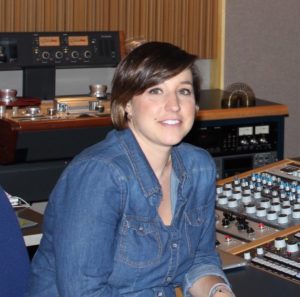 Each one of these built upon each other and then the opportunity to work at Airshow popped up, and she took it.
Each one of these built upon each other and then the opportunity to work at Airshow popped up, and she took it.
“I never thought I’d end up in mastering, but here I am. The universe seems to feed me what I need, I guess, because mastering fits me quite well, I think.”
Anna has now been working in professional audio for over a decade, and at Airshow since 2010, a boutique mastering studio that was started over 35 years ago, by David Glasser. Originally based in Springfield, VA, Airshow relocated to Boulder, Colorado in the 90s with a staff of five engineers, one assistant engineer, and a studio manager. Anna started as an assistant engineer and worked her way up to full-time mastering and restoration. In 2016, Airshow moved once again to a new location up in the foothills above Boulder. Currently, Anna is currently one of the two mastering engineers on the roster. Up until 2018, there was a second studio in Takoma Park, MD, run by Charlie Pilzer, that studio is Tonal Park and offers the full range – recording, mixing and mastering. Anna says “the move for us to the foothills and splitting from the east coast studio signified a refocusing of the company back to just mastering and restoration services.”
Anna loves taking an album across the finish line. Finding the little touches that make a song or an album shine; bringing what the artist has envisioned to fruition. “There’s also an OCD part of me that wants to make sure that everything is absolutely correct and sonically at its best before it goes out into the world. It’s a combination of pulling together all the details while maintaining a bigger picture.” The drawbacks for Anna are being overly critical of her work, which causes her to doubt her ear. She has learned “I just need to step away for a minute, take a breath, freshen my ear and perspective and then dive back in anew. That’s a hard to practice when there are hard deadlines, but ultimately I know that’s what’s going to get the best outcome.”
One of Anna’s favorite projects was a two-volume box set, ‘The Rise and Fall of Paramount Records’ (Third Man/Revenant).
“It was such an immense amount of material (1,600 songs) that Dave Glasser and I tag-teamed everything. I think we did about three to four passes on each song before all was said and done with restoration, mastering, quality-check and final encoding and metadata. It took us about six months per volume. But the music is so cool. If you don’t know the story, Paramount was this record label from 1917-32 started by a furniture company and they kind of accidentally recorded the history of the blues.
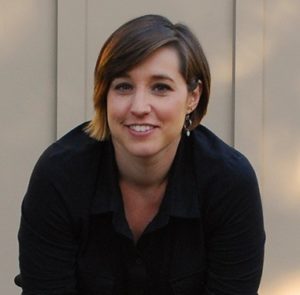 A project she is proud of is Glee, working as the second engineer to the late Dominick Maita on all the releases. She worked under an aggressive schedule with top-notch production, and she found herself as the last ear on everything before it went out into the world. Anna also worked as the project manager for Naropa Institute archives. An immense project that took over two years with four transfer techs to transfer 4,300 cassette recordings. The archive included over 1,000 hours of Allen Ginsberg reading his own works and teaching classes.
A project she is proud of is Glee, working as the second engineer to the late Dominick Maita on all the releases. She worked under an aggressive schedule with top-notch production, and she found herself as the last ear on everything before it went out into the world. Anna also worked as the project manager for Naropa Institute archives. An immense project that took over two years with four transfer techs to transfer 4,300 cassette recordings. The archive included over 1,000 hours of Allen Ginsberg reading his own works and teaching classes.
Anna has learned many lessons along the way and believes it is important to not put your faith in people that do not deserve it. People who you think that will further your career but in the end waste your time. She has come to realize that you should never sacrifice your self-respect to work in the industry, instead focus on building your self-confidence.
Technically, she learned to master by listening, on headphones then in the studio. When she was not in a session, she would sit with Dominick Maita or Dave Glasser turning one knob one click at a time and training her ears.
“I’d pull up one of Dave’s projects and master it myself and compare it with Dave’s master, and then we’d discuss our approaches. One time early on he even said to me “I think I like yours better! Or I’d try to match his master and then compare my settings to his recalls, taking time understanding how each piece of gear can be used or used together. Dom taught me to constantly ask if I’m making it better or worse with every move I make. That becomes a mantra. It’s natural to want to “leave your mark” on a mix, but that’s doing the music a disservice. It’s not about making it sound like I mastered it. It’s making it sound the way the artist wants it to sound. So leaving my ego at the door is one of the biggest lessons I’ve learned.”
Anna’s long-term goals are to continue to learn and grow as an engineer and to evolve with the technology. “This industry can be so fickle that I think I stopped setting goals and started focusing on keeping my head down with my work and keeping my eyes up for opportunities. I didn’t expect to fall into mastering the way that I did, but I love it, and I want to continue pushing the envelope. The new technologies coming out (like MQA) are exciting, and my geeky brain is itching to see what lies over the horizon when it comes to pushing better quality music to music fans. I’d love to continue to be a part of that exploration.” She also worries about running out of work, being undercut by bedroom producers and having to undervalue herself. She hopes that quality will continue to win out.
Advice you have for other women and young women who wish to enter the field?
Ask questions. Don’t feel like you’re not a part of the conversation, force your way in by asking questions. No job is too small – when I started at Airshow, I was lowest on the totem pole, and so it was my job to take out the trash each night – just do it and don’t complain. Don’t devalue your skills, but also make sure your skills are strategic and thought out. And then question them once in a while. I constantly still check my work in my car on the way home – I call it the “Self-Doubtmobile.” Remember that interviewing for a job is a two-way street: while they are evaluating whether you are a good fit for them, make sure you’re evaluating them under the same premise – are they a good fit for you?”
What if any obstacles or barriers have you faced?
I’ve been really fortunate to have found mentors that have given me the opportunity to learn, explore, fail, and succeed beyond the stereotype of my gender. I think that was always the hardest part about being a female in this business – the assumption that I was someone’s girlfriend and not someone myself.
How have you dealt with them?
Fighting that stereotype required me to speak up in situations where I have been ignored, like when a group of (male) engineers starts talking gear or technology. I search for questions I can ask or insight I can add, and I force my way into conversations to “prove” that I’m not just someone’s girlfriend. My husband helps too – he works in live music but not at all on the technical side so when someone starts talking tech with him, he puts his hand up and says “I have no idea what you’re talking about, let me get my wife to translate.”
Must have skills?
Finding better, more efficient ways to do things. In many of my jobs (including my current one), I have hated the CRM / database where we keep all of our client, project and calendar info. Instead of complaining, I would build us a new one using FileMaker Pro – a program I learned by trial and error over the years. My skills with that one program have proved invaluable in so many ways. The one we use at Airshow has vastly improved our client relations, archiving methods and marketing agenda. The ability to question your own methods, to rethink your way of doing things every once in a while can vastly improve your audio skills. I surprise myself sometimes by thinking outside of the box to solve one problem, and that sometimes leads to me changing my workflow because of it. If you think the answer to a question is “No,” figure out why and find a way to change that.
Do you ever feel pressure to be more technical or anything else than your male counterparts?
I certainly feel the pressure to be more technical and have a better understanding of things than my male counterparts. It gets the attention quite often that demands respect. At this point in my career, I feel like I’ve earned that respect, but since the industry changes so quickly, I don’t rest on my laurels. It’s a constant quest to keep up. At the same time though, I understand that to have the technical knowledge means I have to listen to those around me, admit when I don’t know something and ask questions. Being a know-it-all is pompous and doesn’t help the conversation. There has to be a collective intelligence that keeps audio engineering churning forward, regardless of gender. And that’s exciting – collaboratively solving problems.
Is there anything about paying your dues you wish you would have paid more attention to that came back to haunt you later in your career?
I’m an introvert, so when I was in college, I didn’t understand the value of networking. Audio at that point was purely an academic pursuit, but it’s not like other industries where you apply to jobs after college, and you are just on your way. Also, in my first semester, then ran us through kind of an electrical engineering crash course. I wish I would have paid more attention there.
Anna on Mastering
How is Mastering different from recording or mixing?
Recording is like collecting all the pieces that are going to make the final product. It’s like when you’re cooking; you go for the high-quality ingredients because that basis affects the result. It’s forward-looking. Mixing is treating those ingredients with care and respect, but also with balance and precision. You don’t want to overwork the dough, but it’s got to be mixed well, or it won’t bake. Mastering is like the final plating – the ingredients have come together to form something beautiful as well as tasty and satisfying. So mastering is looking backward at all the elements and making sure they all have been assembled well, then looking forward to the audience. It’s the connecting point between the artist’s vision and the audience.
How closely do you work with the artists in Mastering?
It depends on the situation. Some artists are very hands-off – quite often when it comes to mastering, they’ve had their heads in the process so long that they’re either over it and ready for their next project or they’re doubting their decisions and want someone they trust to take the wheel. Other times, the artist is sitting right next to me at the desk, and I’m conferring with them on every choice I’m making. A mastering engineer’s biggest strength comes in knowing how to communicate with an artist on their level and translating what they want to the mix. Sometimes that’s technical, and sometimes it’s much less concrete. Just a few weeks ago I was working on revisions for two projects – one the client was very abstract in what she wanted “a little more open here, a little wider lens there,” and the other client was giving me very specific notes “a slight dip at 660 here, two more seconds in between here.”
What is your thought process of Mastering?
The first thought is always What are my client’s goals? Genre, format, concerns with the mix, flow, those kinds of things. Next, it’s What are the problems in the mix – let’s fix those first. Then it’s Where are the diamonds – let’s make those sparkle. All of these things inform the loudness – which is the target I keep in the back of my mind while I’m processing all of the above.
How long does a typical project take?
In terms of actual hours, it takes me four to six hours to master a full-length album. But then it goes out to the client for approval and once approved, we’ll prep the final master – quality-checking it and cutting any additional masters (LP, high-res, MQA, etc.). I’d say a very tight turnaround for a project would be two or three days total.
How does the process for mastering for different formats ( iTunes, vinyl, surround, etc.) differ?
I try to understand all the formats needed before I start mastering. That way I can make my mastering decisions working towards those. For example, if I know the project is also going to vinyl, I might take a lighter touch on the low end so I don’t have to re-EQ for the vinyl master or steer very clear of using a limiter (I rarely use one these days anyways) and use different techniques to get the loudness I want. Or I might take into account the inner grooves for the dynamic flow of the album sequence. For Mastered for iTunes, it’s safest to stay with a -1.0dB ceiling, so I’ll shoot for that – which I’ve been doing just out of principle more and more lately. Before I used to shoot for -.2dB. I guess I’m saying that I try not to use different processes for different formats and try to keep all the formats within a range suitable for all (if I can help it).
Would you master a production separately for each format?
Certainly knowing the character aspects of each format is very important. For example, I recently worked on a project that was going straight to cassette. Knowing that the tape would inherently dull out the sibilants a touch, and there would be a noise floor added, I aimed to keep the master crisp and clean.
What formal training or education would you recommend?
I think a solid understanding of electrical engineering is important. Also, knowing computer science and some programming skills will keep you in the loop in the rapidly changing digital audio environment.
As far as whether you get your education on the job or in a classroom, I think that depends on the person. I’m good at school, and I like it, so naturally, that path worked for me.
Is it necessary to be well versed in recording and mixing before working in mastering?
I would say yes, despite my career arc. I’ve had to backtrack my knowledge in those areas to better serve my clients because I don’t have nearly as much experience as most mastering engineers in recording and mixing. But when I get a mix in, and something isn’t right about it, I need to help identify what it is that’s wrong – was it the space where the drums were recorded? Or maybe it’s treatment of the vocal’s reverb that’s overwhelming the mix.
There’s no substitute for experience. It’s certainly not going to hurt to get as much experience and knowledge as possible in those areas. I’ve yet to meet someone who has too much knowledge or whose brain has reached capacity. Soak everything in.
What are your favorite plugins or equipment?
I’ve got so many tools at my disposal, and they all serve a purpose. The API 2500 and Fairman compressors have been my go-to’s recently. I often use compressors as EQ, not so much for loudness, so those two compressors both offer up unique flavors that work well. As far as plugins go, I don’t use too many, but the Oxford Inflator is almost always in my chain and Ozone is my problem-solver in many cases. For restoration, it’s iZotope all the way and some extra touch by soundBlade’s NoNoise.
Where is mastering technology heading?
I could say that it’s heading more and more in-the-box because plugins are sounding better with each iteration. I’m certainly using more plugins, but my go-to is always my outboard gear. That could change and it probably will. I’m not ready for that quite yet, though.
I think the biggest leap in my ears has got to be MQA (http://www.mqa.co.uk/). For years we have been hoping that music fans will want to pay for higher quality audio. But that’s simply unrealistic. Music is becoming more and more a passive substance; it’s in the background, it’s a way to escape from reality, while still being present in the situation. I always go to the image of someone listening to music on earbuds while riding the subway. You think that person cares if it’s 96/24? No way. So you can’t expect that person to pay for 96/24 if they don’t understand it and they don’t care to. The best we can hope for is to provide them with dynamic, higher quality audio without having to educate them on why that’s important. That’s what MQA provides. Suddenly, 192/24 is stream-able, without the need for unrealistic bandwidth or consumer buy-in. And also, it sounds incredible.
The flip side to that is the resurgence of vinyl. That is engaging music fans and creating a deeper connection with music albums – they’re complete works instead of a collection of songs, which is contrary to the way music has been headed since iTunes was introduced. I’d love to see artists continue to lean into the vinyl format. The technology we’re using to press records is decades old, so I think there will be some cool improvements in that world.

